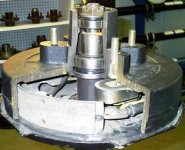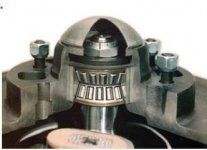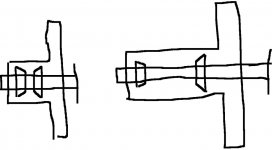Dave, there are several reasons for bearing failure, that can occur with both oil filled and grease. Using the wrong lubricant, mixing incompatible lubricants, and contamination either water or grit, can cause failure. One big bearing killer is improper preload. Lot of unskilled mechanics have a tendency to go to heavy on the preload, thinking a little tighter is better, and sometimes you just have a bad bearing. Dexter uses both Chinese bearings and seals, (at least on my Big Horn) not sure that the quality is as good as American mfg regardless of what lubrication method is used. When it comes time to replace them I'll go back with Timken. On my Easy Lube hubs, I tried to lube them via the instructions with a grease gun, and my arm wore out before I ever had any grease forced out the front. I finally pulled them, cleaned and repacked the bearings by hand. Surprisingly all of the bearings looked great, with no discoloration or pitting on any of them. I did find that most of the grease was confined to the areas around the bearings and most of the center of the hub was empty. It would have taken most of a tube of grease to fill the empty space before any was forced out the end. Lastly I always make it a habit that when I stop to stretch the legs, I do a walk around checking tires and laying hands on the wheel/hub.



